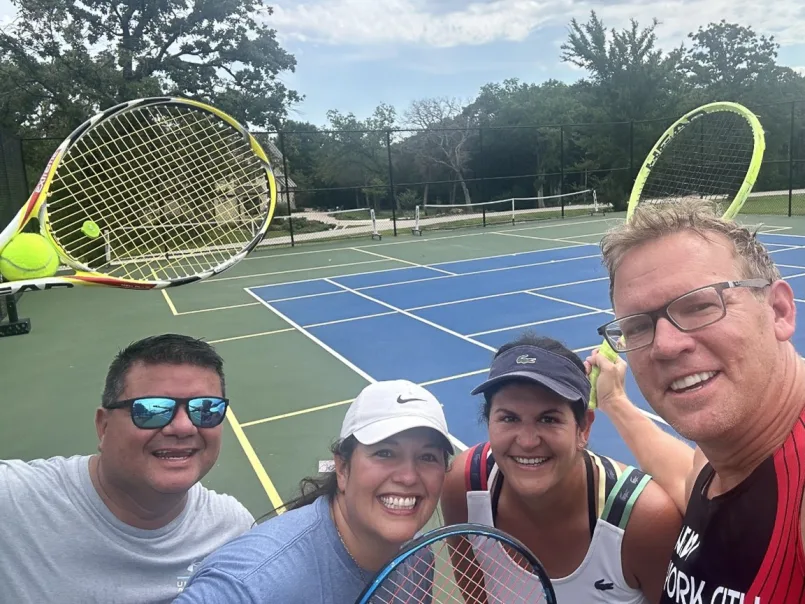As an MBA student at the University of Pittsburgh, Devon Bowling did not intend to enter the tech sector. So why, upon graduation, did she spend more than 15 years as a cross-departmental leader at Texas Instruments?
“Growing up, I wasn’t the least bit interested in tech,” Devon admits. “But Texas Instruments had a lot of women within the finance organization, which was really appealing to me. And their finance org was blended with their supply chain org, which was an interest of mine as well. I had only been interviewing for finance positions but couldn’t say no to the opportunity to work across both.”
Now Devon is taking the next step in her tech journey, transitioning to the consulting side of the industry at AlixPartners—with culture again playing a leading factor.
“Through the interview process and coming onboard, I’ve felt so welcomed. I’m really impressed with the strong culture—the projects I have worked on so far have demonstrated how the bright people that work here come together to do great work and help our clients when it really matters.”

A newfound passion for semiconductors
It was during her time at Texas Instruments that Devon learned about semiconductors, the ubiquitous chips powering everything from computers and cell phones to cars and medical devices.
"To be an excellent finance and supply chain leader at a tech company, you need to know how the products are made. I’m not an engineer by trade; I knew very little about semiconductors at first,” Devon admits. “But I like to joke that I now have an honorary engineering degree after being involved with product management and manufacturing for so long.”
Devon became a semiconductor expert, developing a passion for the industry and how it changes our world. The timing proved prescient, as over the course of the pandemic, the criticality of semiconductors reached the mainstream masses.
“No one really understood how many chips go into everyday products until COVID-19,” Devon explains. “If you asked someone if they owned any Texas Instruments products, most would say ‘no, I haven’t bought a calculator in years.’ In actuality, there are almost definitely Texas Instruments chips within your phone, TV, or laptop. When people couldn’t get these products during the pandemic, they learned how important semiconductors are and how they embed into all that we do.”
However, the pandemic-era chip shortage led to over-manufacturing that a few years later has created excess supply and a market in decline. But every semiconductor cycle has a fingerprint to it. Data centers and AI proliferation will be the signature of the next upswing, Devon says—"more data centers and more computing power means you’ll need more chips.”
Empowering the next generation of women leaders
The tech world remains a male-dominated field, even as companies diversify their C-suites and executive teams. “I won’t say there hasn’t been progress, because there has been—I have fewer challenges than those who came before,” Devon says. “But a lot of times, you’re still the only female leader in the room—and being the only one is not a fun place to be. The more women you can get into the room, the more we can grow together. Many of my closest friends are other female leaders in the industry.”
Furthering women representation in STEM fields starts in school, with teachers that encourage all students to follow their passions. “I don’t believe men are inherently better at math and science—we all have the ability to excel in these areas,” Devon shares. “It’s about fixing the cultural and educational challenges around STEM. We can do much better than we’re doing today, and men serving as allies really helps.”
Diversity is also crucial to building effective work teams—companies won’t drive desired results without the cohesive and collaborative environments fostered by a mix of perspectives and backgrounds. “You won’t be successful if you only hire people like yourself,” Devon believes. “You have to get the right mix of talent and complementary qualities in place—once you do that, everything else falls into place.”

Embarking on a fresh challenge
After leading the semiconductor industry from within, Devon has hit the ground running shifting into a consulting role, joining AlixPartners’ tech practice in September 2024.
“Having worked at one company for so long, I was really looking to get a wider perspective and breadth of experience with the challenges different companies face,” she shares. “When you’re a financial leader at a technical company, a lot of the skills you use are the same that you use as a consultant to speak with leaders and shape decisions—there are a lot of parallels.”
Leveraging her product and operational expertise to advise clients is providing an exciting new challenge, especially as the industry enters a period of rapid evolution.
“Going into consulting has already allowed me a view into so many companies and their unique situations,” Devon says. “With the amount of disruption and change in the semiconductor world, there’s a massive opportunity for AlixPartners to continue its growth in the industry. As newer chips come out, companies will need more help. And we are building the capabilities and paths to success that they will need.”
